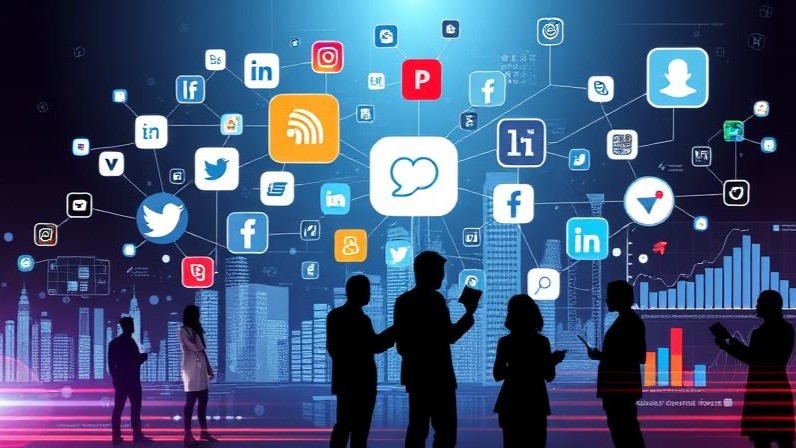In less than two decades, social media has transformed from a simple way to connect with friends into a powerful force shaping communication, business, politics, and culture. Platforms like Facebook, Instagram, X (formerly Twitter), TikTok, LinkedIn, and YouTube have become digital ecosystems where billions of people share ideas, consume content, and build communities. But behind the selfies, memes, and hashtags lies a deeper story of influence, opportunity, and responsibility.
This article explores the evolution of social media, its impact on society, and how to navigate it wisely in the digital age.
The Rise of Social Media
Social media began as a tool for personal expression and connection. Platforms like MySpace and Facebook allowed users to create profiles and stay in touch with friends and family. But with the rise of smartphones and high-speed internet, it evolved into a 24/7 global stage.
Today, social media serves multiple roles:
- A news source
- A marketing platform
- A political battleground
- A source of entertainment
- A tool for activism
- A space for learning and creativity
Impact on Communication and Relationships
Social media has redefined how we communicate:
- Instant Connectivity: Distance is no longer a barrier. We can share life updates, celebrate milestones, or collaborate in real time, across continents.
- Visual Expression: Emojis, memes, videos, and GIFs have created new languages of emotion and humor.
- Digital Relationships: We build friendships, romantic connections, and professional networks online—sometimes stronger than in real life.
Yet, it comes with challenges:
- Reduced face-to-face interaction
- Social comparison and insecurity
- Addiction to validation (likes, shares, comments)
The Business of Social Media
Social media has become a multi-billion-dollar industry. For businesses, it’s a critical marketing tool:
- Brand Awareness: Companies use platforms to reach audiences in creative, engaging ways.
- Targeted Advertising: Algorithms allow precise targeting based on interests, behavior, and demographics.
- E-Commerce Integration: Shopping features on Instagram, Facebook, and TikTok enable users to buy without leaving the app.
Influencer marketing is another booming trend. Individuals with large followings can sway public opinion, promote products, and even create their own brands.
Social Media and Mental Health
While social media offers connection and entertainment, it also affects mental well-being:
- FOMO (Fear of Missing Out): Constant updates can make people feel left out or inadequate.
- Cyberbullying: Negative comments, harassment, and trolling can have serious psychological effects.
- Digital Detoxes: Many now take breaks from social media to reduce anxiety and improve focus.
Maintaining a healthy relationship with social media means setting boundaries, curating your feed, and using platforms intentionally—not compulsively.
The Role in Social Change
Social media has amplified social justice movements. Hashtags like #MeToo, #BlackLivesMatter, and #ClimateStrike have mobilized millions, raised awareness, and pressured institutions to act.
It also gives a voice to the voiceless. Marginalized communities can share their stories, organize protests, and challenge mainstream narratives.
However, misinformation and fake news remain significant threats. The viral nature of content makes it easy for false information to spread faster than facts.
The Future of Social Media
As technology evolves, so will social media. Emerging trends include:
- Augmented Reality (AR) and Virtual Reality (VR): Immersive platforms like the metaverse will redefine digital interaction.
- AI-Driven Content: Algorithms will become even more advanced in shaping what we see.
- Niche Platforms: Communities will increasingly form around specific interests and values.
- Greater Regulation: Governments are beginning to push for stronger policies on data privacy, hate speech, and platform accountability.
Final Thoughts
Social media is a powerful tool—it can connect, inspire, educate, and entertain. But like any tool, its impact depends on how it’s used. In an era where your digital presence is an extension of your identity, being mindful, respectful, and informed is more important than ever.
Whether you’re a casual scroller, content creator, or digital entrepreneur, understanding the true nature of social media empowers you to make the most of it—without losing yourself in the scroll.









